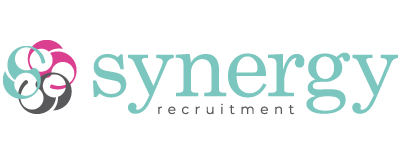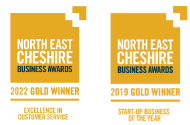Our Top Tips on How to Prepare for an Interview…
So, you’ve got an interview arranged. You may be an interview whizz or you may have not had one for years. Either way you need to prepare for an interview, but the important thing is not to panic. We’re here to help!
Here are some of our key tips on how to prepare for an interview…
-
Take the Job Specification apart line by line:
The job spec describes exactly what the business are looking for. Therefore, you can use this as your best asset for your interview. We would recommend taking an A4 piece of paper and drawing a line down the middle.
On the left-hand side jot down the points from the job specification. On the right-hand side, write down one solid example from your work experience for each point. This will bring focus to your interview and will ensure you’re talking about relevant details within your work history.
-
Make sure that you do your background research on the company!
This is absolutely vital. Interviewers want to feel that you’re really interested in their company. You need to make sure that you look at the company’s website. You can then give your opinion on the points you discuss. For example, ‘I’ve seen on your website that you do X, I find this really interesting because in the past I’ve done Y and I’m really passionate about it’. This will show that you are genuinely interested in the role and the company, not just prepared for the sake of preparing.
-
Prepare some questions YOU want to ask at the end of the interview!
We recommend asking questions that will allow you to walk away knowing whether or not you really want the position. If you’re looking for progression opportunities, ask about that. If you’re looking to work as part of a nice team, ask what the team is like. We also recommend asking role and company specific questions. Doing this shows you’re really thinking about being in the position. For example, for a sales role be sure to ask about where they get their leads from, how they plan to grow the sales function, who their biggest competitors are and so on. Questions like this show you know what’s going to be important within the role.

Questions NOT to ask:
- Anything related to the salary or benefits (holidays etc). It will look like this is all you’re interested in. It could be inappropriate for one of the interviewers to know this information. (if they’re a member of the team as opposed to a manager, for example).
- When a decision is likely to be made. The interviewers should give you this information themselves.
On the day of the interview…
- Dress smartly, unless you have been told otherwise. It is always good to dress as smartly as possible to make a good impression. Even if the company operates a dress-down policy, the expectation is usually still there for interviewees to be smart.
- Arrive to the interview 10 minutes early. It is always good to make sure you arrive slightly early to your interview (not too early of course!) It shows you have the courtesy to arrive before your interview to ensure you’re not late.
- BE ENTHUSIASTIC! This one cannot be stressed enough. Enthusiasm is infectious! Just as you would like to feel the interviewer is really keen on you, so the interviewer will want to feel you’re keen on them.
- Above all else, be yourself. Personality fit is often as important as, if not more so than correct skill sets. So, be sure to show off your winning personality and build rapport with your interviewer.
And remember, your interviewer can often be just as nervous as you are. If their main role within the business isn’t to interview, they may not be well practised and could be unsure of the right questions to ask. So, a bit like the ‘pretend everybody in the audience is naked’ idea, keep that in mind to make you feel more comfortable!






I love the suggestion you guys made to examine the job listing line-by-line and jot down requirements on one side of the page and then on the other side of the page noting corresponding examples from your work experience. I’ve been doing something similar – which I referring as a ‘mirroring’ process – where I take keywords used in the listing and find examples in my work experience where i’ve performed that task and rephrase my accomplishment in that role using their terminology/keywords so that the software can pick up the keywords if they’re not viewing by human. Thank you for offering this suggestion in your blog – I’ll definitely incorporate this trick into my own strategies.
Thank you very much for your feedback! Your ‘mirroring’ process sounds great too. We’re glad we can help and good luck with using the tips in your next interview!